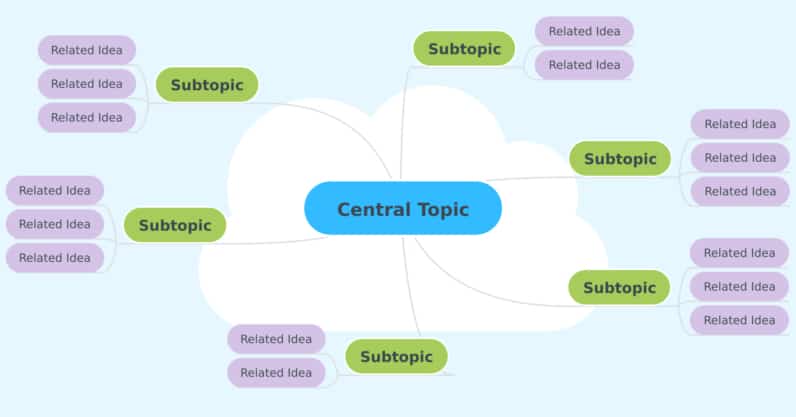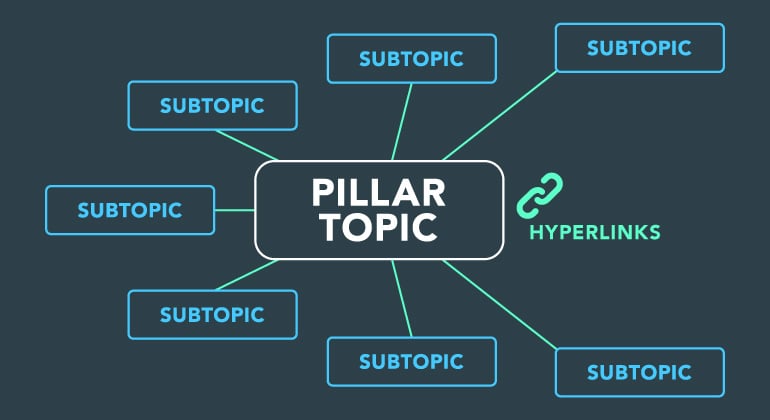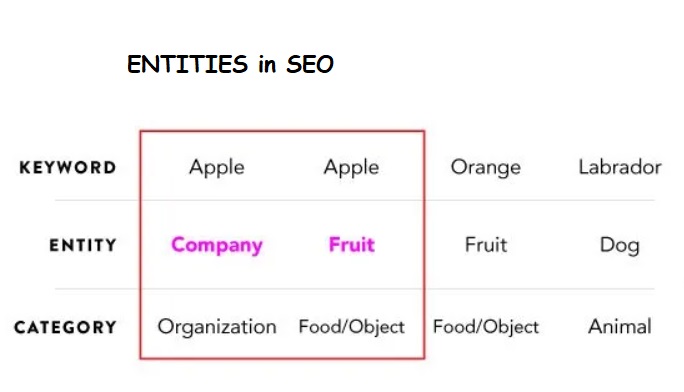Gone are the days when SEO was just about stuffing your content with high-volume keywords.
Today, it’s about relevance, context, and meeting the user’s intent.
You’ve probably heard of Topical Authority, and why it’s the New Trend in SEO.
While it’s a long-term strategy, it typically starts with preparing a Topical Authority map, which brings our new question… how do you generate Topical Keywords?

This article will guide you through topical keywords, their connection with SEED keywords, and how they’re shaping the future of SEO.
Table of Contents
What are Topical Keywords?
Topical keywords are a fundamental element of SEO and content strategy.
They are carefully selected words or phrases that revolve around a specific subject, helping search engines understand the thematic relevance of your content.
Unlike generic keywords, which are often broad and highly competitive, topical keywords are more niche-focused, enabling you to create content that delves deeply into a particular subject.
The key idea here is to provide comprehensive and authoritative information on a specific topic, establishing your website as a go-to resource in that niche.
By using topical keywords strategically throughout your content, you not only improve your chances of ranking well in search results but also cater to the needs and interests of your target audience.
In the long run, they will ultimately drive more relevant traffic to your website.
Why Identifying Topical Keywords is Important in SEO
Identifying and incorporating topical keywords into your SEO Content strategy is a pivotal step in a broader sense of marketing your website’s content.
Most importantly, when it comes to implementing a Topical Map for SEO, this approach makes it easier for users to find the information they are looking for as it facilitates SEO-friendly content planning.
Think of them as the foundational piece of a puzzle that, when placed correctly, sets the stage for a comprehensive and effective approach to online visibility.

As such, these topical keywords act as guideposts, not only for your content creation but also for the creation of subtopics within your main subject/theme.
Therefore, by expanding upon these keywords with related subtopics, you establish a robust topic cluster strategy.
This interconnected web of content not only caters to a wider array of user queries but also demonstrates semantic relevance—the ability to comprehensively cover a concept.
As you delve deeper into these subtopics, you build topical authority.
This means your website becomes recognized as a credible and authoritative source in your specific field or niche.
Search engines recognize this, and as a result, your content is rewarded by ranking higher in search results.
The more your content is aligned with these topical keywords and their associated subtopics, the more it reinforces your authority in that particular subject area.
What is The Connection Between Topical Keywords and SEED Phrases
Seed keywords play a pivotal role as the starting point for keyword research.
They serve as the foundation upon which the entire keyword strategy is built.
However, it’s the process of clustering these keywords that unlocks the identification of topical keywords, which, in turn, form the foundation for constructing topic clusters.
When you cluster keywords, you group them together based on their semantic relevance and thematic connection.
This clustering process reveals patterns and relationships among keywords, helping you unearth the more specific and focused terms—the topical keywords—that revolve around a particular subject or theme.
Once you’ve identified these topical keywords, they become the cornerstone for building topic clusters.
Each topical keyword serves as the core of its respective cluster, around which you create a network of related cluster content.
This content strategy not only caters to a broader spectrum of user queries but also establishes your website as an authoritative source on the chosen topics.
Practical Steps to Identify and Generate Topical Keywords
1. SEED Keywords: The Foundation of Keyword Research
SEED keywords are the starting point of any keyword research.
They’re broad, general terms that describe a topic or industry. For instance, “digital marketing” is a broad SEED keyword that branches into search engine optimization (SEO) and social media marketing (SMM).
Detailed Keyword Research will be helpful in first identifying the following:
- The search volume for each keyword
- The competition for each keyword
- The difficulty of ranking for each keyword
2. From SEED-Phrase to Topical & Keyword Clusters:
Once you’ve pinpointed your SEED keyword, the next crucial step involves categorizing and clustering the resulting keywords based on their semantic relevance or the meaning they share.
This process helps you form a more structured and coherent set of keywords for your content strategy, ensuring that your SEO efforts align closely with the themes and topics related to your SEED phrase.
Several tools can help you achieve this, including our favorite: Keyword Cupid.
This information will help you plan your topic clusters and choose the right keywords to target in your content marketing and SEO campaigns.
To gain a deeper understanding of your content strategy and its hierarchy, consider creating a Topical Map for SEO.

This map serves as a visual representation of the structure of your content, illustrating the relationships between different topics and their associated keywords.
Here’s how it works:
Main Topics: (Level 1 Topical Keywords)
At the top of the map, you place the main topics that are central to your content strategy.
These main topics represent the core themes you want to cover comprehensively.
Branching Subtopics: (Level 2 Topical Keywords)
Under each main topic, you branch out into broader subtopics, which serve as the foundation for creating Topic Clusters.
At each branch, you arrive at what are known as pillar pages.
These are comprehensive pieces of content that cover the main subtopic in-depth.
Pillar pages typically target highly competitive, high-traffic keywords and serve as the central hub for the associated cluster content.

These subtopics are closely related to the main topic but provide a focused angle or perspective.
Subtopic Cluster Content: (Level 3 Topical Keywords)
Beneath each subtopic, you further narrow down into specific related ideas or narrower, more precise subtopics.
Each one represents a specific aspect or facet of the subtopic. These keywords guide the creation of individual pieces of content within your clusters.
Utilizing Entities in SEO to Discover & Target Topical Keywords
Entities in SEO and semantic search refer to specific people, places, things, events, or concepts that have a distinct and unique identity.
These entities can be tangible, like a famous landmark, or abstract, like a philosophical concept.
Search engines aim to understand not just the individual keywords in a query, but also the relationships between these keywords and the entities they represent.
When identifying target topical keywords, you can use entities as a foundation.
Here’s the process:
Entity Research & Search Intent Analysis:
When delving into entity research and search intent analysis, it’s essential to understand the deeper connection between entities and user search behavior.

Entities, as we mentioned earlier, represent specific elements within your niche or industry.
Recognizing the entities that matter allows you to decipher the various dimensions of user search intent:
These could be specific brands, products, locations, industry leaders, or concepts in your keyword research results.
For instance, in the automotive industry, entities might include “Tesla,” “electric cars,” “fuel efficiency,” and “self-driving technology.”
Entity-Driven Keywords:
Once you have a list of entities, use them as a starting point to identify entity-driven keywords.
These are keywords directly related to the entities themselves.
For example, for the entity “Tesla,” entity-driven keywords might include “Tesla Model 3 review,” “Tesla autopilot features,” or “Tesla stock price.”
Entities into Topical Keywords Integration:
By seamlessly integrating entities into your identification of topical keywords, you construct a robust semantic SEO strategy.
This approach not only strengthens your search engine visibility but also elevates the user experience by offering comprehensive, contextually relevant information
Now, use the main Entities as Topical keywords, guided by a topic cluster strategy.
Depending on their breadth, you should create content clusters around each entity, with pillar pages that comprehensively cover the entity’s main topic.
Additionally, use semantic variations and synonyms of entity-driven keywords to ensure a diverse range of content.
Contextual and LSI Keywords:
Entities also provide context for your content.
As you create content around these entities, consider the Latent Semantic keywords that naturally emerge.
These are words and phrases that are commonly associated with the entity.
For “electric cars,” contextual keywords could be “environmentally friendly,” “charging infrastructure,” or “range anxiety.”
Optimization and Schema Markup:
Once you’ve published your content, optimize it to clearly indicate the relationship between entities and topics.
Utilize schema markup to provide structured data about the entities mentioned in your content. This enhances the search engine’s understanding of your content’s context.
Other Valuable Resources for Researching Topical Keywords
By incorporating the following approaches into your keyword research strategy, you can cast a wider net to discover a diverse range of topical keywords that cater to the specific interests and queries of your audience.
1. People Also Ask (PAA) Section:
The PAA section in search results displays questions related to the user’s query.
Clicking on these questions expands them to reveal more detailed information.
This section is a goldmine for identifying long-tail topical keywords because it shows you the specific questions people are asking related to your topic or keyword
2. Competitor Analysis:
Analyzing your competitors’ content and keywords provides valuable insights into your industry landscape.
By identifying the topical keywords they are targeting, you can discover new opportunities and ensure your content is competitive.
3. Google Suggest:
Often overlooked, Google’s autocomplete feature suggests search terms as you type, offers real-time insights into popular queries.
It’s an excellent way to uncover long-tail keywords and phrases that are currently trending.
4. Google Trends:
Google Trends helps you track the popularity of search terms over time.
It’s a valuable tool for identifying seasonal trends, emerging topics, and related keywords that can inform your content strategy.
Monitoring social media conversations on platforms like Facebook, Twitter, and LinkedIn allows you to tap into real-time discussions within your niche.
You can identify trending keywords and phrases that resonate with your target audience.
6. Customer Feedback:
Customer feedback often contains valuable insights into the language and terms your audience uses.
It can help you discover colloquialisms, pain points, and specific keywords that matter to your customers.
7. Industry Forums and Communities:
Online forums and communities such as Quora and Reddit provide a glimpse into the language and questions your audience is using.
Observing discussions can uncover valuable long-tail keywords that align with user intent.
8. Content Gap Analysis:
Analyzing content gaps compared to your competitors can reveal keywords you haven’t targeted yet. It ensures you cover a comprehensive range of topics relevant to your industry.
9. User-generated Content:
User reviews, comments, and testimonials often contain authentic language and keywords that reflect your audience’s experiences and needs.
Whether it’s on your website, competitors’, or third-party tools like review websites, they can be a source of valuable keyword insights.
10. Semantic SEO Tools:
Tools designed for semantic SEO can help you identify related keywords and phrases to enhance the depth and semantic relevance of your content.
A perfect is ChatGPT, in which you can feed the topical keyword and request semantically SEO-related subtopics.
Conclusion
Topical keywords are not just a trend but a testament to the industry’s evolution. By understanding their significance and effectively integrating them into your strategy, you can ensure that your content remains relevant, resonant, and ready for the future. Whether you’re a seasoned SEO professional or just starting out, embracing topical keywords is the key to staying ahead of the curve.



